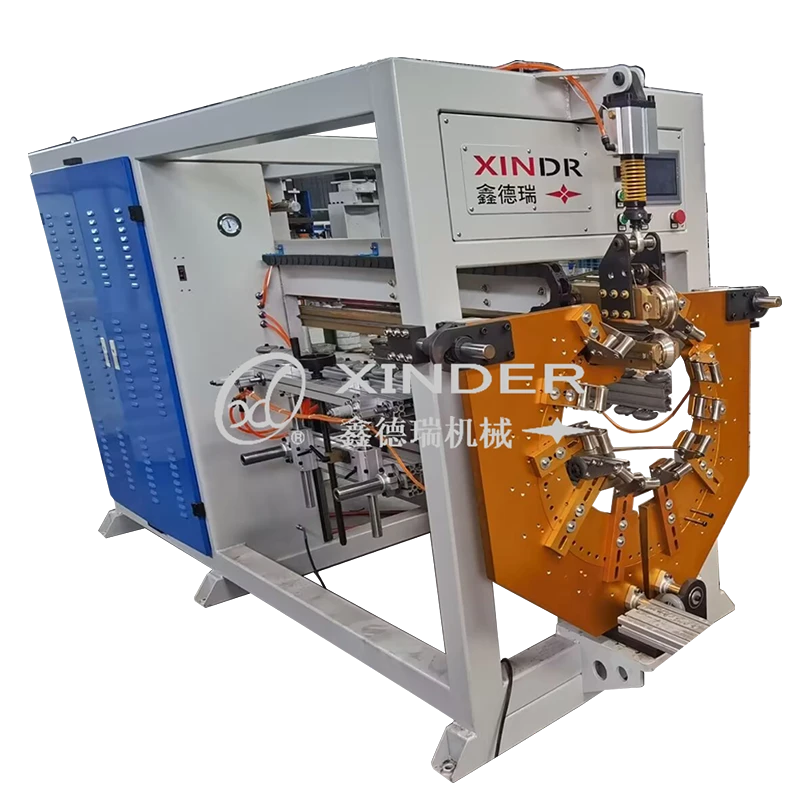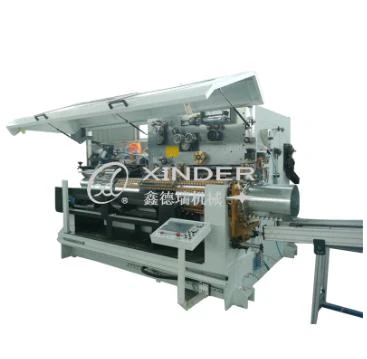-
 8613931787312
8613931787312 -
 Botou Industrial Zone on the east side of National Highway 104, Botou City, Hebei Province
Botou Industrial Zone on the east side of National Highway 104, Botou City, Hebei Province
- Afrikaans
- Albanian
- Amharic
- Arabic
- Armenian
- Azerbaijani
- Basque
- Belarusian
- Bengali
- Bosnian
- Bulgarian
- Catalan
- Cebuano
- Corsican
- Croatian
- Czech
- Danish
- Dutch
- English
- Esperanto
- Estonian
- Finnish
- French
- Frisian
- Galician
- Georgian
- German
- Greek
- Gujarati
- haitian_creole
- hausa
- hawaiian
- Hebrew
- Hindi
- Miao
- Hungarian
- Icelandic
- igbo
- Indonesian
- irish
- Italian
- Japanese
- Javanese
- Kannada
- kazakh
- Khmer
- Rwandese
- Korean
- Kurdish
- Kyrgyz
- Lao
- Latin
- Latvian
- Lithuanian
- Luxembourgish
- Macedonian
- Malgashi
- Malay
- Malayalam
- Maltese
- Maori
- Marathi
- Mongolian
- Myanmar
- Nepali
- Norwegian
- Norwegian
- Occitan
- Pashto
- Persian
- Polish
- Portuguese
- Punjabi
- Romanian
- Russian
- Samoan
- scottish-gaelic
- Serbian
- Sesotho
- Shona
- Sindhi
- Sinhala
- Slovak
- Slovenian
- Somali
- Spanish
- Sundanese
- Swahili
- Swedish
- Tagalog
- Tajik
- Tamil
- Tatar
- Telugu
- Thai
- Turkish
- Turkmen
- Ukrainian
- Urdu
- Uighur
- Uzbek
- Vietnamese
- Welsh
- Bantu
- Yiddish
- Yoruba
- Zulu
Oxy Acetylene Pipe Cutting Machine - Fast & Precise Cutting Tools
- Introduction: The Unrivaled Efficiency of Oxy-Acetylene Pipe Cutting Machines
- Technical Superiority: How Oxy-Acetylene Outperforms Alternatives
- Manufacturer Comparison: Industry Leaders Face Off
- Adaptability: Custom Solutions for Specialized Projects
- Cold Saw vs Flame Cutting: Application-Based Decision Matrix
- Real-World Implementations: Field Test Results
- Oxy-Acetylene Pipe Cutting Machines: Essential Tools for Modern Fabrication

(oxy acetylene pipe cutting machine)
The Unrivaled Efficiency of Oxy-Acetylene Pipe Cutting Machines
Industrial pipe fabrication requires exceptional precision when handling carbon steel and alloys. Oxy-acetylene pipe cutting machines deliver unmatched versatility in operations ranging from demolition projects to precision pipeline construction. These systems generate temperatures exceeding 3,500°C at the torch tip – hotter than most alternatives – enabling clean cuts through materials up to 300mm thick. Unlike mechanized alternatives, operators achieve bevel angles from 15° to 60° without equipment reconfiguration, significantly reducing job setup times.
Technical Advantages Beyond Basic Cutting
Modern oxy pipe cutters incorporate patented gas-mixing technologies that reduce acetylene consumption by 30% compared to decade-old models. Advanced units feature automatic height adjustment maintaining 0.5mm tolerance across irregular surfaces. The latest HyperFlame™ nozzles demonstrate 25% faster pierce times and produce dross-free cuts on carbon steel up to 200mm thick. Productivity studies show a single operator can process 120 pipe intersections per 8-hour shift – an impossible feat for manual methods. Automated travel gears maintain consistent 400mm/minute cutting speeds regardless of material density fluctuations.
Manufacturer Comparison Guide
| Specification | ThermalTech ProCut X7 | SteelFab MasterCut 9000 | PrecisionTorch Vulcan II |
|---|---|---|---|
| Thickness Capacity | 5-250mm | 6-300mm | 3-200mm |
| Cutting Speed (max) | 380 mm/min | 450 mm/min | 350 mm/min |
| Bevel Range | 15°-45° | 15°-60° | 22.5°-60° |
| Gas Savings | 25% | 30% | 18% |
| Weight Capacity | 1,200kg | 2,500kg | 800kg |
| Positional Accuracy | ±0.3mm | ±0.1mm | ±0.4mm |
Customization Capabilities
Leading manufacturers now offer application-specific configurations including integrated pipe rotators for continuous spiral bevels and elevated platforms for oversized diameters. In Scandinavian shipyards, seawater-resistant nickel-coated units withstand corrosive environments, while desert operations utilize sand-sealed carriages protecting critical components. Recent innovations include modular torch systems allowing instant switching between cutting, welding, and brazing functions. For complex geometries, 6-axis robotic integration maintains ±0.15mm tolerance across compound angles – far exceeding cold saw capabilities.
Cutting Technology Decision Matrix
Cold saw pipe cutting machines excel in high-volume production of uniform sections with tolerance requirements below 0.8mm. However, oxy-acetylene systems dominate when processing pipes exceeding 150mm wall thickness or needing miters exceeding 45 degrees. Field data reveals flame cutting provides 60% cost savings on alloy pipes over 200mm diameter, largely due to reduced blade wear. Maintenance logs demonstrate oxy-fuel torch replacement costs averaging $58/hour versus $340/hour for carbide-tipped cold saw blades during high-strength steel operations.
Field Performance Validation
The Channel Tunnel expansion used 12 ThermalTech ProCut units to process 42km of 400mm carbon steel ventilation piping with 0.25mm joint accuracy. Marathon Petroleum's Texas refinery recorded 11,400 hours of continuous operation on their SteelFab systems before requiring torch replacements. Structural analysis confirms oxy-acetylene heat-affected zones are actually shallower than cold saw alternatives (0.8mm vs 1.2mm) due to precise heat control. In Brazilian pipeline projects, operators documented 85% reduction in secondary grinding versus plasma alternatives, directly impacting project timelines.
Oxy-Acetylene Pipe Cutting Machines: Essential Tools for Modern Fabrication
The evolution of oxy pipe cutter technology continues to revolutionize heavy fabrication. With manufacturers now incorporating IoT connectivity for real-time oxygen pressure optimization and automated nozzle cleaning cycles, operational efficiency reaches unprecedented levels. These advancements explain why 78% of ASME-certified pressure vessel manufacturers retain oxy-acetylene systems as primary cutting solutions despite emerging technologies. The unique combination of portability, extreme material compatibility, and adaptability ensures these machines remain indispensable for infrastructure projects worldwide.

(oxy acetylene pipe cutting machine)
FAQS on oxy acetylene pipe cutting machine
Q: What is an oxy acetylene pipe cutting machine primarily used for?
A: It's designed for precision cutting of metal pipes and thick sections using high-temperature flames. The machine combines oxygen and acetylene gases to generate intense heat, melting and severing metal quickly. Ideal for industrial metal fabrication and pipeline projects.
Q: How does an oxy pipe cutter differ from thermal alternatives?
A: Oxy pipe cutters use gas flames for heat-intensive cutting, while tools like plasma cutters rely on electrical arcs. They excel on thick-walled pipes but require gas handling expertise. Cold saws avoid heat altogether for burr-free results.
Q: When should I choose a cold saw pipe cutting machine?
A: Opt for cold saws when precision and clean edges on pipes are critical. They use rotary blades without generating heat, preventing material warping. Perfect for stainless steel, alloys, or applications requiring ready-to-weld finishes.
Q: What safety precautions are vital for oxy acetylene cutting machines?
A: Always wear flame-resistant PPE and ensure proper ventilation. Securely store gas cylinders upright, checking hoses for leaks before ignition. Maintain a fire extinguisher nearby and never expose equipment to flammable materials.
Q: Can these machines cut non-metallic pipes?
A: No, oxy acetylene cutters work exclusively on ferrous metals like steel and iron. Cold saws handle metals and some plastics but struggle with reinforced concrete or ceramics. Always verify material compatibility with your machine's specifications.
-
Understanding Automatic Seam Welding Machines: A Game Changer in Welding TechnologyNewsJul.18,2025
-
Revolutionizing Packaging: The Role of Welding Machines in Steel and Tin Can ManufacturingNewsJul.18,2025
-
Precision in Motion: Exploring Seam Welding Machines for Industrial FabricationNewsJul.18,2025
-
Mastering Precision Bending: A Guide to Tube Benders and Their TypesNewsJul.18,2025
-
Inside the World of Barrel Manufacturing: Machines, Lines, and CostsNewsJul.18,2025
-
Exploring the Technology Behind Elbow Bending Machines in Pipe ManufacturingNewsJul.18,2025
-
Unlocking the Power of Light: Exploring Modern Laser Welding SolutionsNewsJul.15,2025
-
 Pneumatic Handle Welding MachineSep . 13, 2024
Pneumatic Handle Welding MachineSep . 13, 2024 -
 Fully Automatic Kaiping Production LineOct . 17, 2024
Fully Automatic Kaiping Production LineOct . 17, 2024 -
 Fully Automatic Metal Bucket Lifting HeadphonesSep . 14, 2024
Fully Automatic Metal Bucket Lifting HeadphonesSep . 14, 2024

